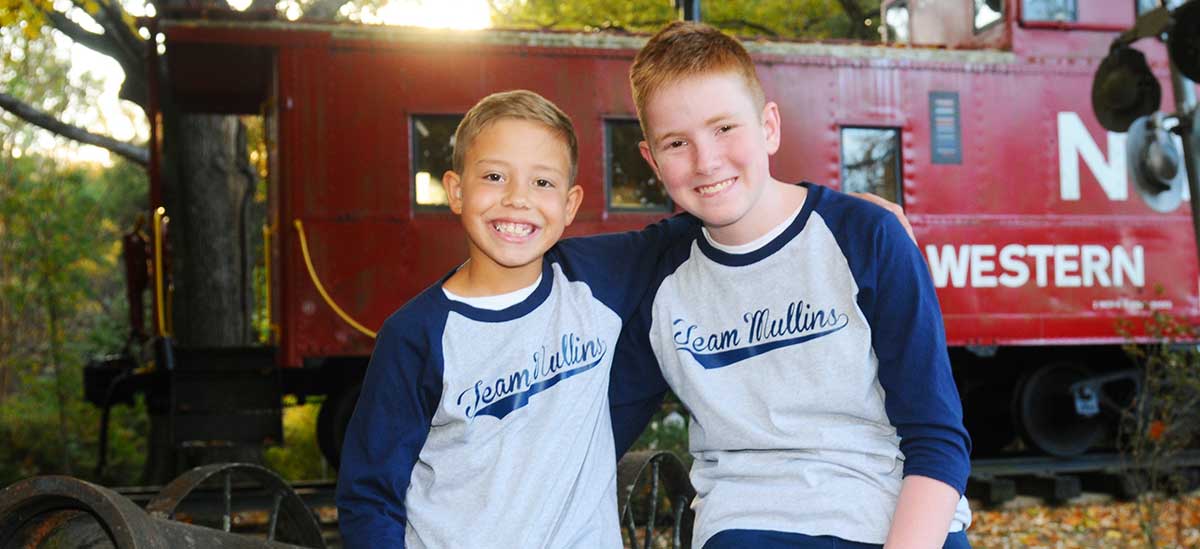Opening Homes & Hearts
Foster parenting sounds intimidating, but with support, it can be incredibly rewarding. Linzie Mullins, a Youth Villages foster-to-adopt parent in Memphis, was once in your shoes. She has a great story and serves as a wonderful resource for current and future foster parents.
Linzie and her husband looked into fostering in late 2019, and by the next year, had a foster son who they later adopted. They’ve since adopted another boy they fostered. She has made fostering her passion and regularly gives advice and support to prospective and current foster parents.
Linzie recently helped four families bring foster kids into their homes through Youth Villages. She also regularly talks and meets with three foster moms who ultimately adopted through Youth Villages in the last three years. Here are her top four nuggets of wisdom:
If you’re considering it, do it. Listen to that voice encouraging you to look into fostering. Kids are always in need of a safe place to live or stay short-term. Youth Villages provides training and constant access to counselors and emergency services. You’re not in this alone. Foster parents undergo extensive training to prepare them for the challenges and rewards of fostering. The Department of Children’s Services, along with partnering agencies, require this training to become a foster parent in Tennessee. Youth Villages’ Therapeutic Foster Care program also requires two additional trainings focused on trauma and collaborative problem-solving. Regularly scheduled check-ins and counseling sessions are required for both the child and foster parents, separately and together. Additionally, counselors are available 24/7 to help with situations that may arise.
Know you’re making a difference. Providing a safe home for a child makes an enormous difference in their lives. By keeping a schedule, letting the kids know you are there for them and they can rely on you provides a constant and reliable routine that kids need.
Keep the grit. Maintaining your resolve and determination to provide a safe, loving home for kids is the most important task for a foster family. Your kids may have experienced trauma in their previous home. Continuing to fight for them with their struggles can boost their confidence and help strengthen your relationship.
Help in other ways. Not everyone is in a place to be a foster family, and that’s OK. You can help other foster families by providing a meal, running errands, or helping with yard work. Donations to local organizations can go a long way, too. Foster kids need toiletries, proper school clothing, and supplies.
A few other things to know about being a foster parent:
Who can be a foster parent? Foster families can be single parents, couples with or without children, same-sex couples, older couples — just about any household with room (and beds) to care for and support children in foster care.
Are there different lengths of stay for children in foster care? Yes! Some children are fostered to eventually adopt, and some are respite visits for weekends or weeklong stays. In many instances, fostering is focused on providing support for a child and their biological family so they can be reunited. Foster parents provide safe and loving homes to children at a crucial time in their lives, when they truly need support the most, before successful and safe reunification with their families.
Who are the children in the most need of a home? Teenagers need foster placements the most, especially older teens who otherwise will “age out” of the foster care system at 18. There is also a need for foster parents to support Extension of Foster Care (EFC) youth, ages 18-22 years old, who can continue to receive services in foster care.
Story featured in Memphis Parent Magazine.
To learn more about becoming a foster parent, fill out inquiry form or call 1-888-MY-YV-KID.
Read more foster parent stories here.

